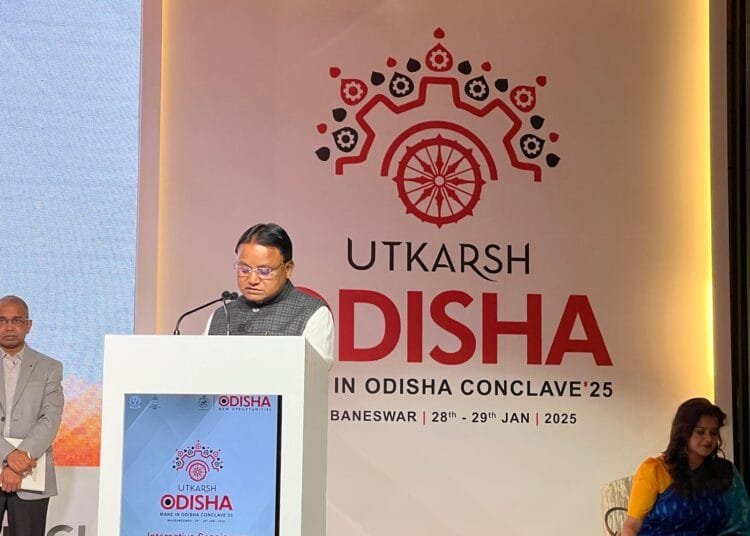FICCI encouraged by focus on PPP
The 2019-20 Budget has a clear action plan for making of a US$5 trillion economy over the next few years, said the Federation of Indian Chambers of Commerce and Industry (FICCI) President Sandip Somany.
“We see a clear action plan for realising the vision of making India a US$ 5 trillion economy over the next few years with a focus on ease of living,” he said welcoming the budget presented by Finance Minister Nirmala Sitharaman in parliament on 5 July 2019.
The budget maintained its focus on infrastructure development, he noted.
While the government would continue with its existing major national programs like Bharatmala, Sagarmala, Rural roads, Udan and Inland waterways scheme, the vision of taking connectivity to the next level through ‘One Nation One Grid’ for electricity and a similar plan for gas grids, water grids, i-ways and regional airports is indeed ambitious and would be transformational in its impact.
“FICCI has been advocating the need for such networks and would work with the government on realising this vision. We are also encouraged by the Minister’s focus on promoting public-private partnership for modernisation and upgradation of the nation’s railway infrastructure,” said Somany.
Addressing financial issues, Somany noted the government’s attempt to address these through allocation of Rs.350 crore for interest subvention scheme for GST registered MSMEs and creation of a payments platform to enable filing of bills and payment thereof on the platform itself.
Also noteworthy is the suggestion to set up a social stock exchange for listing of social enterprises and voluntary organisations. Somany expects this to open up new avenues for funding for entities working in the social sectors.
“I would emphasise that the government has taken due cognizance of the funding needs of a growing economy and this is reflected in a series of measures announced to deepen the country’s capital markets as well as help increase inflows both through the institutional investment and direct investment route.
“In our pre-budget consultation, FICCI had suggested the need to look at FDI norms in sectors such as insurance, animation, gaming etc. and we are glad this found a mention in the budget,” he said.
Additionally, to attract cross border investments, the statutory limit of FPI in a company is proposed to be increased from the current 24% to the sector foreign investment limit.
The announcement to further provide Rs.70,000 crore for capital infusion into public sector banks along with measures to strengthen the governance processes within the banks should help in improving the credit flow to the industry.
“The NBFC sector has been in focus on account of the stress being faced due to liquidity crunch in the last few months. Acknowledging the important role played by NBFCs, some key measures have been taken which should help ease the liquidity situation for the fundamentally sound NBFCs going ahead.
“As this happens, we hope to see greater amounts being sanctioned and disbursed by the para-banks particularly in the MSME and retail segment,” said Somany.
Another novel feature of the budget is to marry the benefits of rural infrastructure development with sustainable livelihood opportunities.
Having achieved tremendous success over the last five years in terms of promoting connectivity, housing, provision of electricity and clean energy in rural areas, the focus now is to promote traditional resource-based industries and create avenues for self-employment and entrepreneurship.
“From the point of view of the farm community, the decisions to set up 10,000 farmer producer organisations and fully leverage the benefits of e-NAM for getting fair and remunerative price are welcome.
“In FICCI’s Agenda for the New Government, both these points were highlighted, and we had urged the government that these are essential components of any strategy aimed towards doubling income of our farmers over the next few years,” said Somany.
To strengthen the education system in the country, FICCI had suggested that the government finalises and implements the National Education Policy, sets up a National Science, Technology and Human Research Foundation; and hasten the setting up of Higher Education Commission of India. FICCI would like to thank the government for having incorporated these suggestions in the budget proposals.
On the disinvestment front, FICCI welcomes the government’s decision to enhance the target for the current year to Rs.1.05 lakh crore.
“We had of course suggested that given the demands on exchequer, government should look at a target of Rs.1.5 lakh crore. Additionally, the government’s decision to consider divesting its stake in select public sector units to below 51% is interesting and we look forward to details on this subject.
“On the taxation front, while we are happy to note the decision to raise the turnover limit from Rs250 crore to Rs.400 crore for companies that would attract a corporate tax rate of 25%, we had hoped that this rate will be applicable to all firms.
“Given the way tax policies are evolving globally, we need to be competitive if we are to attract and retain investments at a high level. With the Economic Survey also highlighting the critical role played by private investments in addressing concerns related to growth and employment, a bigger boost to the corporate sector was expected,” said Somany.
Enhanced deduction for interest payments on loan taken for affordable housing, clarification on Angel Tax and the thrust on speedier resolution of legacy tax disputes in the indirect tax segment are some of the other important announcements on the tax side.
“Finally, government has remained focused on making India a ‘cash-lite economy’ and once again we saw in this budget a couple of suggestions that would help the country move ahead on this track,” he said. fiinews.com










